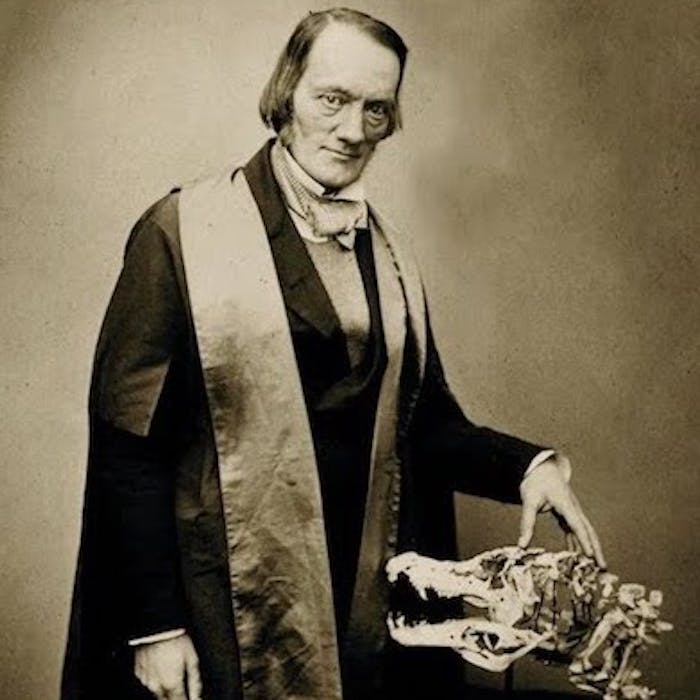
Sir Richard Owen - 'hard-hearted' father of the Natural History Museum
Sir Richard Owen was an English biologist, anatomist and palaeontologist, whose efforts helped to establish London's Natural History Museum as the well-loved public institution it is today. Despite his genius, he was thoroughly disliked by many - described by Charles Darwin as "spiteful, extremely malignant," and by the president of the Geological Society as suffering from "lamentable coldness of the heart".
Richard Owen was born in 1804, in Lancaster. After attending grammar school, he became apprenticed to a local surgeon, during which he gained experience in post mortems at the local prison, which led to an interest in anatomy. So consuming was his interest, that he bribed a prison guard to allow him to remove the head of a recently deceased prisoner to allow him to study it.
Despite being a controversial figure, Owen is generally considered to have been an outstanding naturalist with a gift for interpreting fossils. He was the originator in 1842 of the word 'Dinosauria', meaning 'fearfully great reptiles,' specifically Megalosaurus, Iguanodon, and Hylaeosaurus, the only three dinosaurs known at the time.
Owen also campaigned for the natural specimens, then in the British Museum, to be given a new home. This resulted in the establishment, in 1881, of the now world-famous Natural History Museum in South Kensington. Author Bill Bryson has argued that, 'by making the Natural History Museum an institution for everyone, Owen transformed our expectations of what museums are for'.
While he made several contributions to science and public learning, Owen was regarded as remarkably mean-spirited, quarrelsome and sneaky – given to hounding other talented scientists out of the profession. By refusing to accept Darwin’s theory of evolution by means of Natural Selection, Owen has also traditionally been portrayed as a bad boy of nineteenth-century biology. His later career was tainted by controversies, many of which involved accusations that he took credit for other people's work. He died in 1892.
Further reading
Links to external websites are not maintained by Bite Sized Britain. They are provided to give users access to additional information. Bite Sized Britain is not responsible for the content of these external websites.
